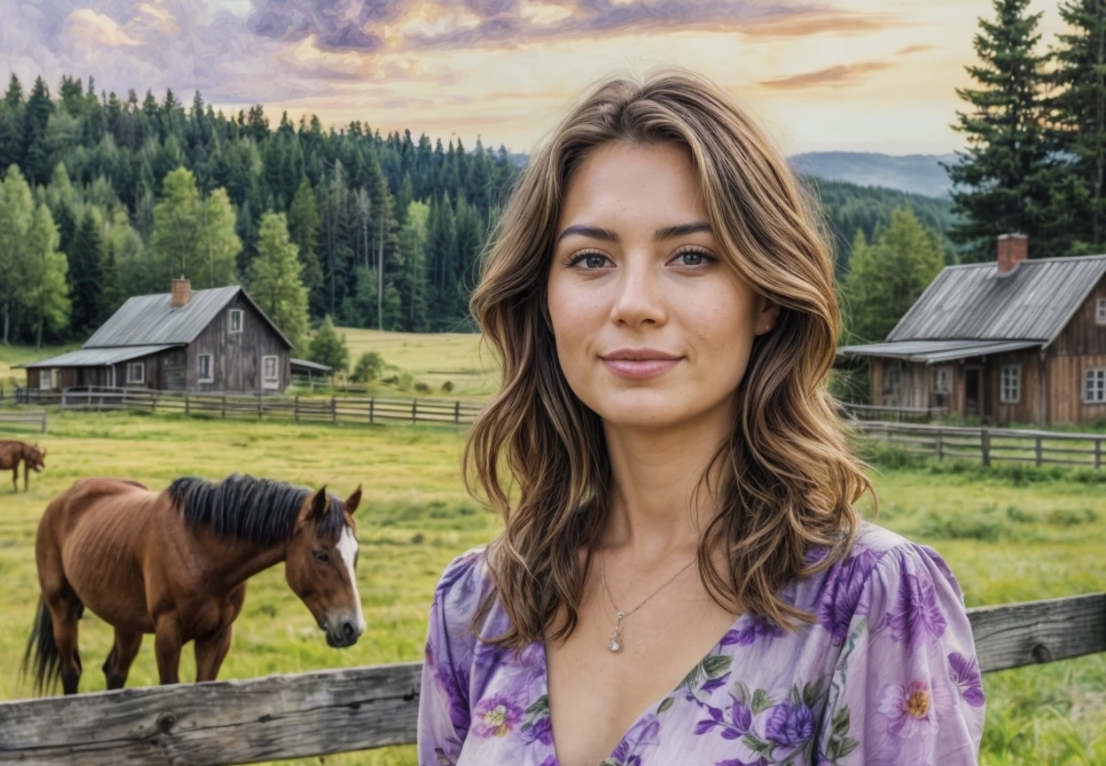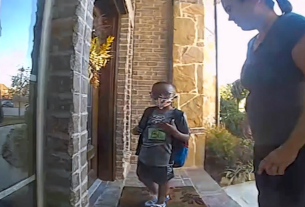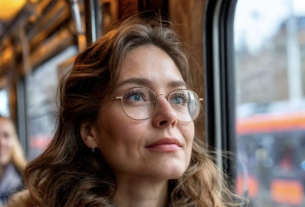Elena had just turned twenty-three—a milestone which, in their small provincial town, was considered the boundary between carefree youth and a settled, orderly life. Friends, neighbors, and the aunts at the market all felt obliged to inquire about suitors and, with sighs, hint that it was high time to think seriously about such things, or she’d remain a spinster forever. Elena only waved them off, impish sparks lighting up her eyes.
“I’ll marry only an orphan!” she would declare with a defiant smile, watching her listeners’ eyes round in astonishment. “A pure, bona fide orphan. No mother-in-law on the horizon, no father-in-law. No one to lord it over me, to sigh reproachfully over my borscht, or to hint that their son deserves a princess in a diadem. I want us to be each other’s only and sovereign family.”
They brushed her off, called her a dreamer and a naive fool. They said the kind of man she wanted you couldn’t find even in broad daylight with a lantern, and if you did, he would surely be someone with a heavy past: either a widower weighed down by the memory of his first wife, or a divorcé entangled in the ghosts of the former and in alimony.
But Elena stood her ground. She wasn’t in a hurry. She felt cozy and bright in her parents’ home, where the air smelled of fresh bread and apple jam. In the evenings her older brother Viktor—an unruly dreamer and bachelor much like herself—read Jules Verne aloud, and their father, to the soft clack of their mother’s knitting needles, played old melodies on the accordion. She had finished medical college and threw herself into her work in the surgical ward, where she was valued for her golden hands and bottomless compassion.
Life wasn’t exactly easy—they lived in an old wooden house drafty from every side, carried water in buckets from the street pump, and the facilities, as in the old days, were out in the yard. But many lived like that then, and it was not considered a tragedy so much as a common, familiar fact of life.
It was the mid-eighties, that curious era when the world seemed to smell of mothballs and hope at once, when people didn’t buy apartments but received them in turn—like manna from heaven, a pass into a new, comfortable life.
And then the miracle happened. Their turn came up at their father’s factory, and the family was given not merely an apartment, but a whole cottage in a new neighborhood built for the workers. A detached house for a single family—with central heating, gas, hot water, and its own bathroom under the same roof. It felt like happiness bordering on science fiction.
They moved in right after New Year’s, in the very thick of a harsh, snowy winter. There were no long New Year holidays then, and they had neither the time nor the strength for a proper housewarming. They decided to celebrate on the Old New Year, the night of January 13–14, which happened to fall on a weekend.
That very evening Elena came home from work dead tired. Her shift had been hellish: she had to cover for herself and for a partner who’d come down with a fever. A wave of sly, stubborn flu had swept the city; the wards were packed, the anesthesia machines hissed without pause, and her legs throbbed from running and refused to obey. She barely made it to their new house, still smelling of fresh paint and wood, barely greeted her parents bustling in the kitchen, and, without undressing, collapsed on the bed in her room. Sleep seized her at once, like a dark, warm, bottomless wave.
It seemed to her that only a couple of minutes had passed when a persistent, impatient knock yanked her out of oblivion. The house was quiet—her parents, apparently, hadn’t yet returned from the grocery with the last purchases for the celebration. Viktor must have forgotten his keys, she decided, peeling her head from the pillow with effort.
Outside, the northern winter darkness was impenetrable. The knocking came again, more insistent now, joined by some indistinct, drunken muttering behind the door.
“Well, Viktor, you’ve drunk yourself into a beastly state,” Elena thought irritably, pulling on her robe. She was too exhausted to be truly angry. She wanted only one thing—that everyone calm down quickly so she could fall asleep again.
Without looking, feeling for the latch, she clicked the lock and opened the door, letting a vague male figure into the dark entryway.
“Go to the back room, there’s a bed made up,” she muttered through sleep, not even peering at the guest. “Knock yourself out.”
She shuffled straight back to her bedroom, burrowed into the pillows again, and sank into a serene, deaf sleep.
She was finally awakened by voices and appetizing smells drifting from the kitchen. Elena washed up, made herself presentable, and came into the main room. Her mother was already in full command there, while Viktor—fresh, lively, and absolutely sober—was slicing bread and setting out plates.
“How quickly he slept it off and pulled himself together,” she thought in surprise.
Soon guests began to arrive—relatives, colleagues, friends, and neighbors from the old house who, over the years, had become almost like family. There were about twenty people. They pushed three tables together in one long line, draped them with a snow-white tablecloth, and covered them with plates of salads, aspic, and roasted chickens. The air hummed with laughter, reminiscences, and the anticipation of a celebration.
It was five minutes to midnight. Her father rose to make the first, most important toast—to the new nest, to happiness, to the future. He had already lifted his famous crystal glass when the door to the back room creaked open.
There he stood. Tall, terribly embarrassed, with tousled dark hair and a sleep-flushed face. He wore nothing but boxer shorts with large blue polka dots—shouting in their absurdity against the festive finery all around.
For a second the room was suspended in stunned silence, broken by someone’s strangled laugh and a joke:
“And here’s Grandfather Frost himself! Straight from the North Pole!”
The stranger froze, his gaze roaming over the gathering with wide, frightened, incredibly blue eyes.
“Lena! And who is this?!” her mother gasped, instinctively clutching at her heart.
“I… I don’t know,” Elena confessed honestly, feeling her knees go weak.
“Who are you? How did you get here?” Viktor demanded, advancing on him with big-brother severity.
The figure in polka-dot shorts hunched shyly.
“Aleksei…” he stammered. “I… I was at a friend’s. He’s having a housewarming today. Well, we… started celebrating a little ahead of time. Then we went out for more… I don’t usually drink—just a little—but I guess it hit me, and I was really worn out from the week. I lost my friend somewhere… I headed back to his place. I knocked… Someone opened… Some girl… told me to go to the back room, said there was a bed ready. So I went. I slept. And now I woke up and… came out.” He faltered and spread his hands helplessly. “All the houses look the same… And it was dark. I must have just mixed up the house. My clothes are probably in the entry… I’ll get dressed and leave right away. Please forgive me!”
He was so sincere, so comically and touchingly helpless in those ridiculous shorts, that the anger and bewilderment of the gathering began to melt, giving way to curiosity and even pity.
“Where would you go?” Elena’s father was the first to come to his senses. “The buses have stopped. You won’t find a taxi in our area at night. You won’t find your friend’s house in the dark either. Stay till morning. Go wash up, get yourself together, and come to the table. There’s room for everyone.”
When Aleksei returned—washed, combed, and dressed in Viktor’s plain but clean clothes—he looked entirely different: a pleasant, modest, slightly awkward young man. He flatly refused a drink, explaining that he’d had enough for the evening. He gratefully poured himself strong hot tea and set to his food with such evident relish that Elena’s mother immediately began piling extra helpings onto his plate.
“We drank at my friend’s with hardly a bite,” he explained sheepishly. “To be honest, I’m starving.”
And so, amid guests’ laughter and the clink of glasses, Elena met Aleksei. And the most incredible thing—her own vow, the one she had made to herself, came true. Aleksei turned out to be a complete orphan. Entirely. Absolutely.
He had grown up in an orphanage. He had never known his parents—his mother, very young, had left him at a foundling home. Even his date of birth in the documents was approximate, and his last name—Sirotin—had been assigned from the registry, as it was for hundreds of other children who belonged to no one.
Fate, having heard her unserious words tossed to the wind, handed her her own ideal—in the most ridiculous, incredible, and touching guise, a New Year’s gift in family-style shorts.
Nearly forty years have passed. They’re still together. They raised two wonderful children. Now they have three grandsons and a little granddaughter they adore beyond reason. Aleksei turned out to be a rare breed of man—a caring, faithful, reliable husband, a wonderful father and grandfather who dotes on his lively brood.
Sometimes, on winter evenings by the fireplace in that very cottage, they recall that night. And Elena looks at her gray-haired, life-wise Aleksei and thinks about how strange and wise life can be. How a casual joke, tossed off in a moment, can become a prophecy. How one single mistake, a wrong turn in the dark, can lead you not where you planned to go, but exactly where you are truly needed—where you were awaited without anyone knowing it.
And she feels goosebumps—not from the cold, but from the realization of life’s incredible, mystical, beautiful truth: the most important meetings sometimes happen in the silliest pajamas. And true love can knock on your door at the most inconvenient moment—only to stay forever.



